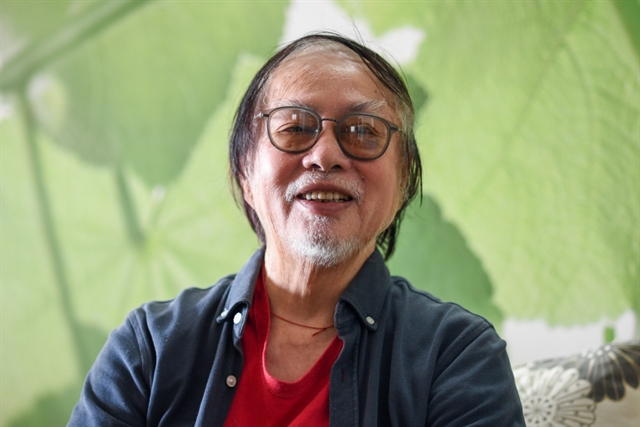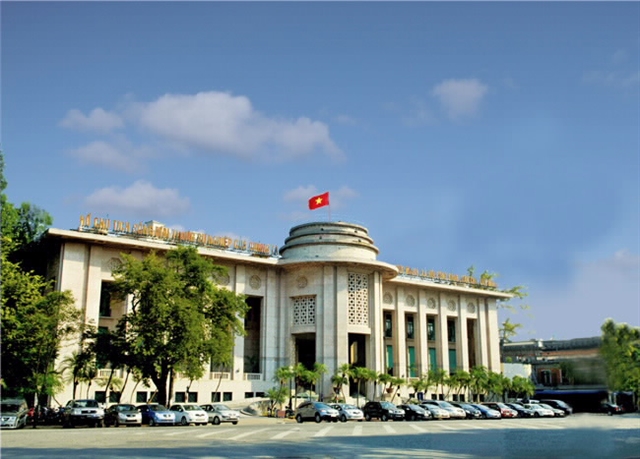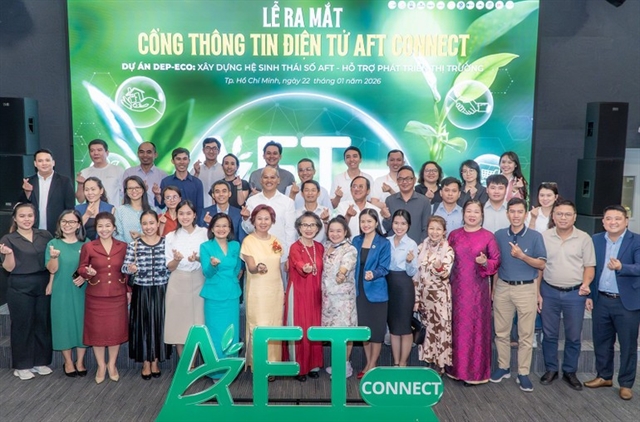 Life & Style
Life & Style

Đặng Nhật Minh is one of the few Vietnamese directors with global renown. Lao Động (Labourer) newspaper's Anh Thư interviews Minh about his latest movie Hoa Nhài (Jasmine)

|
| Award-winning director Đặng Nhật Minh. Photo nongnghiep.vn |
Đặng Nhật Minh is one of the few Vietnamese directors with global renown. The self-taught filmmaker made highly acclaimed films such as Bao Giờ Cho Đến Tháng Mười (When the Tenth Month Comes) and Đừng Đốt (Don’t Burn).
When the Tenth Month Comes was listed as one of the best 18 Asian films of all times by CNN whilst Don’t Burn was the Vietnamese representative at the 82nd Academy Award in the US.
The Lao Động (Labourer) newspaper's Anh Thư interviews Minh about his latest movie Hoa Nhài (Jasmine).
You are making a new movie about Hà Nội and its residents. Could you tell me something about it?
My native land is the central province of Thừa Thiên Huế. But I have lived in Hà Nội for more than 60 years. The movie is my observations of daily life. It is very simply about the sentiments of the people.
I believe Hanoians are still typically characterised like in old verses about the elegance of Hanoians. I made this movie about Hanoians because I see many negative things about Hanoians in the mass media and films as well. It makes people think the typical characteristics of Hanoians are gone.
I want to prove the opposite although many rural people have rushed to Hà Nội to earn a living.
The movie story is about human relations during busy life in an urban area. The characters include a rural shoeshine boy, an old couple and an old musician who teaches a choir of blind children.
I think this movie is possibly my last one.
It took you more than 10 years to make a new movie. What difficulties do you encounter when making it?
The movie was produced by a small studio in Huế City. The producer wanted to give me a chance to make a film because it was really a long time since I had done my job.
Financial resources for the movie were small. We just shot and pre-edited the movie and we are waiting for capital mobilisation for post-production. Plus, the COVID-19 pandemic makes the process more difficult.
The movie is not made under a state commission so we are not under pressure to complete it. We hope the movie will be finished at the end of this year.
I'm aiming for the movie to break even. But I will accept if it loses money. There are no action or sex scenes in my movie. I am glad to do what I like and what I want to do.
I like Iranian cinema very much. Low-budget films are shot with little funding but they have been highly acclaimed and have won the international audience’s hearts.
I have called on Vietnamese filmmakers to work like Iranians many times. And in this movie, I try to make it simple with a small budget.
You're father, doctor Đặng Văn Ngữ, was famous for giving his life during wartime. Have you ever thought about making a film about him?
I had the idea a long time ago. This is my spiritual debt to my father. I completed a script called Huyền Nhiệm (Miracle). It will need a high budget to make this movie because it will be about my father’s life. Its highlights will be from his time in his homeland, studying in Japan, joining the national resistance against the French and taking over the capital in 1954.
He successfully researched the method of manufacturing penicillin and explored ways to prevent and treat malaria. Then he was killed by American bombs.
The movie will have many realities. It will be difficult to make it without the participation of a state-owned studio. Private studios can't do it.
I proposed the script to the culture ministry's Department of Cinematography but it was refused. I haven’t paid my spiritual debt but anyway I put it down in words. It is a film on paper.
You have made films for 60 years and have been honoured with many awards at international and domestic film festivals. What do you think about your career?
I will turn 83 years old this year. I think that I have made a certain contribution to Vietnamese cinema. But just a little because I engaged in filmmaking late. I was an interpreter before a filmmaker.
I have made about 10 motion pictures and several documentaries.
At present, I hope my movie Jasmine will be post-produced by a film production company and help introduce the movie to the audience.
Jasmine has just finished picture editing and has been shown to my close colleagues. Some of them said that it is still the style of director Đặng Nhật Minh but its storytelling differs from previous ones. I want it to be minimalistic, not fussy.
What do you think are the characteristics of creativity?
A director always puts his imprint on a film. Despite the contribution of many components such as actors, cameramen, painters, etc, but the director decides the success or failure of the film.
I want the audience to see my movies and recognise they are made by Đặng Nhật Minh.
Creativity is the fundamental characteristic of an artist. I respect it so I don’t accept things that contrast with my characteristic.
Dialogue for a role is written by my pondering thoughts. Therefore, sometimes arguments happen because an actor who has a strong personality wants to act as they like. Certainly, I don’t agree.
When an actor agrees to sit in an orchestra, they must follow the baton of the conductor. If they are not satisfied, so be it.
I’d rather be seen as tough than lose my creativity making a bad film. VNS




